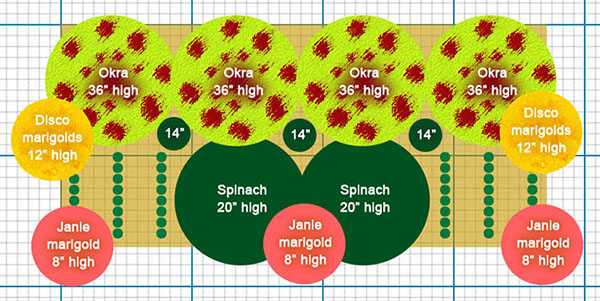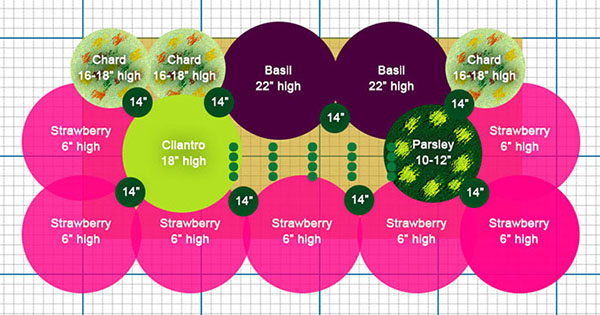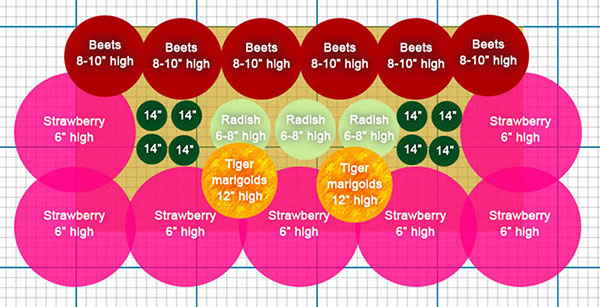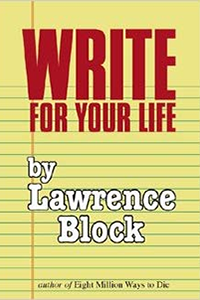 Just a few steps inside the door to the tally room, Gael paused. He’d lifted the door latch softly, and Keir hadn’t realized his master had come in. The boy had opened not only the shutters, but the casements themselves, and bright sun along with cool air poured through the embrasures and across the stone floor. The shelves on each side of Keir’s desk made his working surface into a pocket of dimness, but Gael’s assistant sat very straight, his quill held between slim fingers at the correct angle, his blond head bent only slightly.
Just a few steps inside the door to the tally room, Gael paused. He’d lifted the door latch softly, and Keir hadn’t realized his master had come in. The boy had opened not only the shutters, but the casements themselves, and bright sun along with cool air poured through the embrasures and across the stone floor. The shelves on each side of Keir’s desk made his working surface into a pocket of dimness, but Gael’s assistant sat very straight, his quill held between slim fingers at the correct angle, his blond head bent only slightly.
Young eyes, thought Gael, his affection for the boy welling from some place within. He could almost imagine his tally room as his old laboratory in Hadorgol and Keir as his apprentice learning magery. Innocent magery. Safe magery. The blue energea that purified water or encouraged a poisoned wound to heal. Not the searing and dangerous orange energea of the truldemagar.
Gael shook his head. This was Belzetarn, not Hadorgol, and his tally chamber had its own compensations.
He inhaled slowly, savoring the warm redolence of the parchment mingled with the dry scent of dust, and moved forward into the welcome quiet, broken only by the scratching of Keir’s quill.
The boy turned at Gael’s footfall and looked up, his jaw-length hair swinging back from his smooth face. “The tallies from yesterday all match,” he said.
“Even that of the privy smithy?” asked Gael, surprised.
“Even Martell’s,” said Keir. “Although, not in any way we would wish,” he added, laying down his quill and corking his ink jar.
Gael sighed and came farther into the room, drawing the chair from his own desk next to Keir’s. “Tell me,” he said.
Keir nodded. “The wastage from the smelteries was less than usual.” He smiled. “I think my pose that the tally room was seeking greater efficiency moved them to extra effort.”
Gael snorted. “Hardly needed.”
“No,” agreed Keir. “But those opteons pride themselves on wringing every last drop of ore from the oxhides and pebbles.”
Gael was well aware of it, but he said nothing. Keir would communicate his full report without prompting.
“The lodge tallies and those of the grinding, annealing, and hilt smithies all match exactly,” the boy continued. “The wastage from the armor smithy is normal.”
“But the blade smithy?” asked Gael, surprised again. The blade smithy never possessed anomalies.
“No discrepancies,” Keir assured him quickly, “but one of the blade pours failed.”
“Hells,” Gael swore softly. “Then how was the smith so calm when I saw him in the afternoon?”
Keir grinned. “He expected it to fail. He’s bringing one of his decanens along, and this was the fellow’s first blade.”
“Ah.” Gael looked skeptically at his assistant.
Keir’s grin faded. “But look at this.” He drew a parchment from the stack he’d been working on.
Gael leaned forward to get his face further out of the direct sun.
Keir tapped the first three items listed on the sheet. “Here are the ingots we issued the privy smithy yesterday morning: eighteen ingots of copper, four ingots of tin, and one ingot of bronze. That’s twenty-three pounds of metal.”
Gael nodded. Now they were getting down to it.
Keir continued. “And you’ll see that the items listed for the day’s work also add up to twenty-three pounds.” He tapped the bottom of the sheet. “But it makes no sense. And we both know why.”
“The privy notary is fudging the weights,” said Gael.
“We knew he was, Secretarius,” said Keir quietly, “but I had no idea how bad it was until I saw him myself this morning. Martell would have grabbed the ingots before his notary got anything at all tallied, and I’m sure he does the same in the evening. I thought there was some estimation going on, but it’s all estimation. You can see it right here!” Keir tapped the parchment again. “Look! We issued four tin, right?”
Gael nodded.
“And here are the tin-lined sauce pans that Martell used half an ingot on.”
“Yes,” agreed Gael.
“The rest of the list was all poured in the one-nineteen bronze that Martell thought should have been one-twelve bronze.”
Gael could see the problem. Martell thought he’d used one-and-a-half ingots of tin to make his bronze, but the bronze itself had shown that he’d used only one ingot of tin, maybe less. Since the privy smithy had received four ingots of tin, and Martell had used only one-and-a-half ingots of tin, where were the other two-and-a-half ingots?
Well, Gael knew where one of them had gone. Arnoll had taken it. And it had not been tin, but merely copper disguised to look like tin. But that still left one-and-a-half ingots utterly unaccounted for.
Keir had more to say. “Since Martell’s bronze for the day was made from eighteen ingots of copper, one ingot of bronze, and one or less ingots of tin, the most his output could have weighed would have been twenty pounds. Hells!” Keir never swore, but he was swearing now. “There would have to be some wastage. And, yet, here his notary claims twenty-three pounds of bowls, platters, and so on.” Keir poked the parchment savagely.
“That’s where our tin thief is getting his ingots then,” said Gael.
“But we’re no further ahead than we were before,” grated Keir. “We knew it had to be the privy smithy supplying the thief.”
This was a new side to Keir, displaying a touch of heat rather than his customary cool.
Gael straightened, squinting as the sun caught his eyes. “No, we suspected the privy smithy served as our thief’s source. We did not know it.”
Keir puffed a breath out. “Do we even know it now? We’re giving the other smiths the benefit of any doubt, based only on our assessments of their natures. We could be wrong. Should we observe them the way I’ve observed Martell?”
Gael suppressed a smile. Keir was nothing if not logical, and he did have a point. But the boy forgot that Gael had worked with these trolls for much longer than the two years Keir had known them.
“We’ll follow this lead for now. If it peters out, we’ll consider other possibilities, such as investigating the other smithies. But our lead is going somewhere, wouldn’t you agree?” said Gael.
Keir’s sudden spurt of energy abruptly congealed.
“What is it?” Gael asked quietly.
Keir bit his lip. “It mayn’t be anything.” The boy swallowed. “I hope it’s nothing.”
Gael frowned. “Yes?”
“Ravin, one of the tin smeltery scullions, saw Arnoll take an ingot of tin from the privy smithy yesterday morning,” blurted Keir. “He thought Arnoll was correcting a mistake, and I thought so, too, when he told me. But”—Keir shook his head—“Arnoll hasn’t told you or turned the tin ingot in, so it can’t be that, can it? Arnoll was stealing. Arnoll.” A slight flush colored Keir’s cheeks.
Gael relaxed. He’d been wondering how to keep Arnoll’s secret, while yet explaining the returned copper ingot. Keir’s disclosure meant Arnoll’s secret was already out—part of it—which meant Gael need not choose his words quite so painstakingly.
“Arnoll was following the directive of a higher authority when he took the ingot,” said Gael.
Relief chased across Keir’s features. “You knew?”
“He told me himself,” said Gael.
“But who? And why?” asked Keir.
That was something Gael still needed to conceal.
Keir’s brows drew down as he cogitated. “The regenen?” he guessed.
Gael had to stop that line of reasoning. Keir would unravel far too much if permitted to continue.
“I’m not free to speak,” Gael stated.
Keir’s eyebrows flew upward. “The regenen,” he said.
“Keir, Arnoll returned the ingot to me, because it was not tin. It merely looked like tin.”
Keir’s face went white.
Gael started to reach for the boy, but stayed the impulse. What ailed the lad? Gael hadn’t yet revealed the most troubling fact about that disguised ingot—that it had been disguised through the manipulation of energea. Something strange here, just as little strangenesses had emerged all through Gael’s initial probing into his two mysteries.
“Keir?”
Keir swallowed. “How—how could it look like tin, but not be tin?” he choked out.
“I think you already know what I was going to say,” answered Gael.
“Someone broke the regenen’s ban?” asked Keir.
“It was a copper ingot energetically disguised as tin,” confirmed Gael.
Keir swallowed again. “That’s—that’s bad,” he whispered.
Gael nodded. “Our thief is likely powerful, willing to defy Carbraes, and a practicing magus.”
Keir straightened his hunched shoulders. “So the copper ingot you left on my desk—”
“—was the ‘tin’ ingot Arnoll removed from the privy smithy,” said Gael.
Keir’s chin lifted. “But the bronze ingots! Where did those come from? And we were missing only one, not two.”
Gael cleared his throat. “I suspect that if you were to tally the bronze vault at this moment, you would discover that the return of the two ingots brings us to exactly the right number.”
Keir’s eyes widened and his lips parted. He seemed to be looking a long ways away.
Gael took the opportunity to recount his and Arnoll’s chase after a fugitive in the Cliff Stair and the finding of the bronze ingots in the bucket niche of the latrine.
Keir’s attention came back from whatever distant place his thoughts had carried him. He narrowed his eyes. “So Arnoll had one ‘tin’ ingot, but he’s not the troll we’re looking for. Someone else took two bronze ingots and hid them in the latrine. And someone else took one-and-a-half tin ingots—” the boy tilted his head “—how do you steal half an ingot anyway? But we don’t know where they are. And none of this hangs together.”
“It doesn’t,” agreed Gael.
Keir’s hand reached out to grip Gael’s wrist. “Secretarius, there’s one thing more.”
“Only one?” joked Gael. He felt immune to startlement at this point.
“I don’t know why I didn’t tell you it first.”
“I suspect the matter of Arnoll and the fudged privy smithy tallies distracted you.”
“They shouldn’t have,” said Keir. The boy seemed to be regaining his balance. “One of the porters or scullions on the Regenen Stair stole an ingot of tin this morning right out of the carry sack of the privy scullion.”
“Surely not,” said Gael.
“I tallied every last thing that went into his sack from the vaults,” declared Keir. “And I watched the privy notary tally each thing as it came out in the smithy. One ingot of tin was gone.”
A feeling of cold crept into Gael’s stomach, dousing the nibblings of hunger arising there. He usually broke his fast properly in the morning, eating much more than the snack he’d cadged from Barris on his way to the yard. “But you did not see the theft as it occurred?” he questioned Keir.
“I did not.”
Gael really did not like where this might be leading. In his mind’s eye, he could see Barris’ hand moving underneath that tray of smoked fish. Wasn’t it enough that one friend had betrayed him? Was a second to prove equally . . . fallible? Or had Barris merely been steadying that tray?
Keir was looking down at his lap. “But what would a mere scullion do with an ingot of tin anyway?” he asked.
Gael gripped his feeling of incipient loss—hard—and stuffed it down.
“A scullion might steal at the behest of another, and that is what I think has happened,” answered Gael. “I learned from the mine teamsters that the magus has been poking around both the copper mine and the tinworks where he has no business. And . . .” Was it wise to disclose this to Keir? Gael firmed his lips. Yes. Keir needed to know to be on his guard. “. . . the castellanum has always disliked me, as you know. Last night I discovered that he felt you should have come to him as notary rather than to me. And his resentment is the stronger thereby.”
Keir’s face went blank, and then he chuckled. “You think the castellanum might have bribed a kitchen scullion to steal tin, just because he hates you?”
“I did not say that Theron hated me,” chided Gael.
“He does, though,” said Keir.
“No doubt. But you should be wary of him, Keir,” said Gael.
Keir’s lips quirked.
Gael abruptly remembered other words spoken at the high table. Words spoken by Nathiar. “I’m serious, Keir.”
“Yes, Secretarius.”
“Be even more wary of the magus,” Gael added.
Keir’s chuckles evaporated. It seemed he took the magus at least more seriously.
* * *
Next scene:
The Tally Master, Chapter 8 (scene 42)
Previous scene:
The Tally Master, Chapter 8 (scene 40)
Need the beginning?
The Tally Master, Chapter 1 (scene 1)
 Standing beside the sea in the cove below her home, with Pater behind her, his hands warm on her shoulders, Keiran had been learning how to herd fishes.
Standing beside the sea in the cove below her home, with Pater behind her, his hands warm on her shoulders, Keiran had been learning how to herd fishes.










